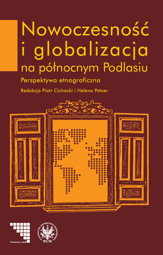Information about a product
| Edition: | 1 |
| Place and year of publication: | Warszawa 2020 |
| Publication language: | polski |
| ISBN/ISSN: | 978-83-235-4146-2 |
| EAN: | 9788323541462 |
| Number of page: | 290 |
| Size of the file: | 2,39 MB |
| Publication type: | Praca naukowa |
| DOI: | https://doi.org/10.31338/uw.9788323541301 |
In the distorting mirror of irony and self-mockery. Implicitly on women and men
A description of three experiments involving women and men, conducted with the aim of verifying how gender, self-esteem and anxiety influence the way verbal irony and self-mockery are generated and perceived, and how the image of the “I” is created in the process. The findings indicate that ironic statements (criticizing by praising or praising by criticizing) function not only on two linguistic levels (the literal and the intended one), but also in the perspective of the two sexes. Irony is more of a men’s domain. Men are more ironic than women and they often employ irony bordering on a joke. In the case of women, there is a tinge of spitefulness in their irony. People with higher self-esteem and lower anxiety levels are more likely to make use of self-mockery.
Keywords: irony, self-mockery, sex, gender, stereotype, self-esteem, anxiety, humour, emotions.
See other publications in the series: Współczesne problemy psychologii »
A description of three experiments involving women and men, conducted with the aim of verifying how gender, self-esteem and anxiety influence the way verbal irony and self-mockery are generated and perceived, and how the image of the “I” is created in the process. The findings indicate that ironic statements (criticizing by praising or praising by criticizing) function not only on two linguistic levels (the literal and the intended one), but also in the perspective of the two sexes. Irony is more of a men’s domain. Men are more ironic than women and they often employ irony bordering on a joke. In the case of women, there is a tinge of spitefulness in their irony. People with higher self-esteem and lower anxiety levels are more likely to make use of self-mockery.
Keywords: irony, self-mockery, sex, gender, stereotype, self-esteem, anxiety, humour, emotions.
See other publications in the series: Współczesne problemy psychologii »
Zobacz również
Polecane



Neurobiologia na tropie świadomości (PDF)60,00 zł
42,00 zł
Details
- A textbook devoted to the problems of the rapidly developing branch of science concerned with the functioning of the brain. The author considers the biological foundations of animal and human minds . He presents a multitude of concepts and study results

Zaburzenia mowy u dzieci - wczesne rozpoznawanie i postępowanie logopedyczne - PDF19,00 zł
14,00 zł
Details
- Książka jest zbiorem doniesień rozproszonych w mało dostępnym piśmiennictwie medycznym, pisanych przede wszystkim z nadzieją, że zwrócą one uwagę lekarzy, psychologów i logopedów na problemy dzieci z zaburzonym w różnym stopniu, nieprawidłowym

Antropolodzy na wojnie. O "brudnej" użyteczności nauk społecznych – EBOOK59,00 zł
14,00 zł
Details
- The study explores the history of cooperation between anthropologists, army and intelligence since the times of James Cook’s expeditions, through the colonial rivalry between European powers, the First and the Second World Wars, the Cold War, until recent

Update Required
To play the media you will need to either update your browser to a recent version or update your Flash plugin.







